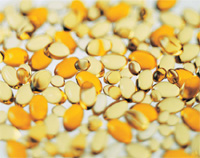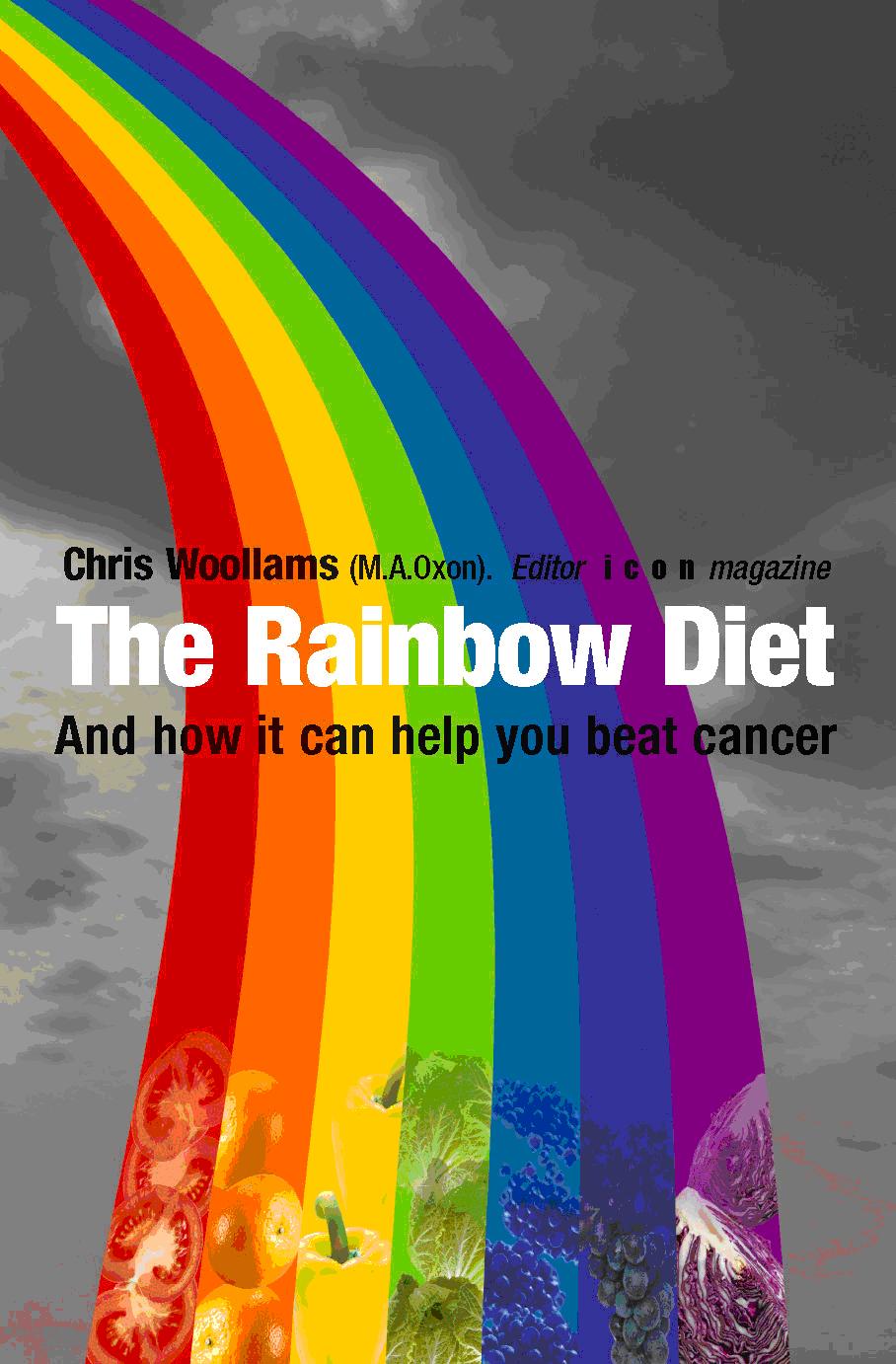Originally published in September 2003 icon

Does It Work On Cancer?
The overwhelming conclusion when studying vitamin A (as opposed to Beta-carotene) is that where cancer is concerned the jury is out. There are research papers that conclude it is helpful; others that conclude it has no effect. Vitamin A does, however, have many health giving properties. Of relevance to cancer, it helps strengthen the immune system (especially the white cells) and, in particular, it strengthens epithelial tissues (and, by implication, blocks the process by which many cancers form). Vitamin A also helps the action of vitamin C, a known anti-oxidant.
The History
Egyptian documents dating from 1500 BC tell that people suffering night blindness could be cured by squeezing the juice of a fried or roasted animal liver directly into the eyes. Hippocrates refined this a little and simply suggested eating liver to treat the condition. By the twelfth century, healers had shown that foods like fish and egg yolks aided human growth and healing. By 2001 some researchers in America were linking high blood serum vitamin A levels to protection against both breast and prostate cancers.
The Vitamin
Vitamin A itself is actually a family of fat-soluble vitamins, including retinol and retinoic acid. They are often dubbed "preformed vitamin A".
Vitamin A helps the normal development and growth of bones; it is essential for all cell differentiation, epithelial tissues, visual and reproductive function. It is also noted as an anti-ageing agent. It is not itself an antioxidant.

Pure vitamin A is usually only available on prescription as it is toxic in regular, and not excessive, amounts. The only sources of preformed vitamin A are "animal": for example, fish oils, especially cod liver oil, whole milk and liver. Many fortified foods, such as breakfast cereals, contain it.
It is stored in the liver, from where it is released in times of shortage. However, large doses of vitamin A cause liver toxicity - the symptoms include a yellowing of the skin or eyes, rashes, fatigue, headaches and blurred vision. Vitamin A is lost during food preparation, cooking and storage.
US RDA for vitamin A is 1000 retinol equivalents, where 1 equals 3.33 International Units, i.e. a total of 3,333 lU’s per day. However, an absolute maximum of 100,000 lU’s is set for vitamin A daily consumption because of the toxicity problem.
The Beta-Carotene Confusion
A second way of increasing levels of vitamin A in the body is via its precursors, the carotenes - also called provitamin A. These allow your body to convert the precursors into vitamin A, as and when needed, avoiding toxicity problems. However the conversion is blocked by polyunsaturated fats unless there are good supplies of other antioxidants present to neutralise them. In other words, the best way to maximise your vitamin A level is to take it as beta-carotene along with other antioxidants.
Does it Help in Cancers?
There are many reports of beta-carotene as an antioxidant helping in cancer prevention and treatment. Unfortunately some of these confuse the issue about the effectiveness of vitamin A on its own. "Unlike beta-carotene, vitamin A is not an antioxidant, so its benefits relate to its possible roles in reversing tumour development and boosting immune function". (McDonald). "The association of vitamin A and cancer was initially reported in 1926 when rats, fed vitamin A deficient diet, developed gastric carcinomas". (Loescher - Vitamin Therapy for advanced cancer).

The association of vitamin A deficiency and cancer was initially reported in 1926

The first investigation showing a relationship between vitamin A and human cancer was performed in 1941 by Abelsetal who found low plasma vitamin A levels in patients with gastro-intestinal cancers. Moon TE and colleagues (South West Stem Cancer Prevention Study Group, Cancer Epidemiol Biomarkers Prey 1997) conducted a randomised double blind, controlled trial on retinol supplementation with melanomas. This study concluded that supplementation with 25,000 lU’s of retinol per day was effective in preventing squamous cell carcinoma.
Finally McDowell concluded that "vitamin A has the potential to reverse pre-cancerous lesions".
Or Maybe Not?
Olson has observed that, for example, some studies show a connection between serum retinol levels and prostate cancer whilst others do not. He acknowledges that vitamin A is essential for cell differentiation (an important step in the cancer process) but that there is no consistent association established with the anticancer role.
There are as many studies with no result concluded, as there are suggestions of an effect.
The Last Word?
It is possible that the type of vitamin A is the crucial factor.
Proponents of vitamin A’s success argue that on top of cell differentiation promotion, vitamin A also inhibits cellular proliferation (Baumann did research on breast cancer cells).
Spencer argued that there are decreases in similar metastases if retinoids were used alongside other treatments after the primary tumour was removed.

Vitamin A also inhibits cellular proliferation

Now new research studies announced in February 2003 by Dr Waun Ki Hong at the University of Texas believe retinoic acid is the active ingredient, and they have formulated a drug from it that seems to be effective.
The study involved former smokers. Smoking causes genetic damage which takes time to disappear, leaving the exsmoker at risk. It is known that retinoic acid is essential for the epithelial cells in the lungs to function normally by activating retinoic acid receptors. Loss of the receptors leads to lung cancer. Dr Waun Ki Hong and his team have developed a drug derivative of retinoic acid which showed a 7 per cent risk reduction.
Dr Julia Sharp of Cancer Research UK said, on hearing about the trial, that vitamin A derivatives might have the potential to help repair cells damaged by smoking.
So vitamin A might not work after all, but a drug based on it might. Now there’s a surprise.
You’ll have to draw your own conclusions on this one!
Vitamin A + Beta-carotene - An Alternative View
Right now, in the USA a lady called Mary L Cupp is helping her State Representative draft a bill about the obligation of doctors to their patients. Her story concerns vitamin A.
Mary’s story began in 1986 when she sought dietary advice from an holistic, but fully qualified US doctor who recommended a strict vegetarian, dairy-free diet.

Mary was recommended a strict vegetarian, dairy-free
diet

Over the two years that followed, Mary’s health deteriorated markedly until she developed anaemia, gastrointestinal bloating and other problems. A chiropractor recommended iron tablets. A short while later Mary developed a severe uterine haemorrhage.
Going back to the original doctor, the recommendation was a hysterectomy but Mary refused. She was given medication and the recommendation was repeated several times over the four years that followed. One day Mary was admitted to hospital with life-threatening bleeding. She had the operation.
Several months after the hysterectomy Mary discovered an article about a 1977 South African medical journal study of vitamin A as therapy for excessive bleeding. The study resulted in a 92.5% cure rate. The article further covered the use of vitamin A at Johannesburg General Hospital with a documented 92% cure rate over a 10-year period. (Excessive bleeding is the main symptom that leads to hysterectomies).
Mary did more research and discovered that the extreme vegetarian diet recommended by her doctor could deplete vitamin A, which can only be found in animal products. Worse, people with low thyroid function are unable to convert beta-carotene into vitamin A. Coincidentally patients with low thyroid function often have excess bleeding and a higher risk of reproductive organ surgery. Soy foods, which Mary used to replace dairy, can depress thyroid function. Furthermore vitamin A aids the absorption of iron and the building of blood.

Mary started to take vitamin A supplements and her health improved

Mary started to take vitamin A supplements and her health improved. She learned that vitamin A is definitely connected to the health of the gastrointestinal tract, and she followed the work of Dr Weston Price, whose work emphasises the need for both vitamins A and D in the diet. Her corrective vitamin A intake was 100,000 lU’s.
 At Last - the definitive, research based book on how to build a diet to help beat cancer. Click here to read about it.
At Last - the definitive, research based book on how to build a diet to help beat cancer. Click here to read about it.
In her view, the real story on vitamin A can be read at: http://www.westonaprice.org/vitamin/av%20agary.html. Mary’s email is cabbidge@javanet.com.
Please be clear: At CANCERactive we do not consider the above compound to be a cure for cancer, despite what the research says or experts doing the research may claim. The above, is an article on the compound from published research and expert opinion in the public domain. At CANCERactive we do not believe that any single compound (drug, vitamin, whatever) is a cure for cancer. We believe that people can significantly increase their personal odds of survival by building an Integrated Programme of treatments. Equally, cancer prevention is best practiced through a width of measures.